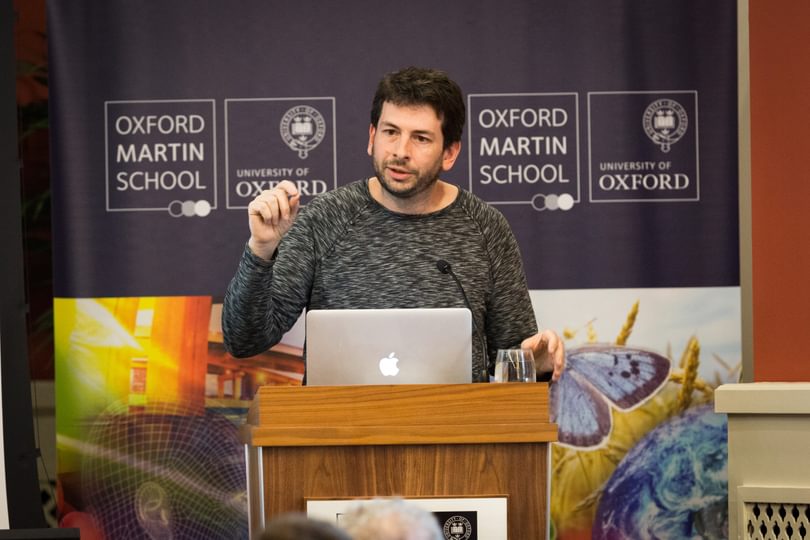
Advances in machine learning and perception, and the question of what artificial intelligence might mean for humanity, were discussed by Google’s Principal Scientist, Blaise Agüera y Arcas, in a lecture at the Oxford Martin School on 10 May.
The company's artificial neural networks lab focuses on investigating machine perception problems, computational neuroscience, and analogies between machine networks and biological ones that perform similar tasks.
Reflecting on previous attempts to build machines that can learn, Mr Agüera y Arcas said the likes of Deep Blue and Watson had 'thought' in a very different way to humans. "They don't play chess by understanding chess but by exhaustively exploring the tree of potential moves," he said. "That's very unlike the sorts of things that a human chess player does, which are much more intuitive."
But two years ago there had been a big shift in machine perception, he explained. “These new networks were much better at perceptual tasks than anything that had come before, and they also evinced a lot of the characteristics that seem to be parallel to what we observe when we look at real neurons in visual systems.”
Mr Agüera y Arcas said the new architectures were very much modelled on physiology, and that the artificial neural nodes had exhibited sensitivity similar to that of receptive fields of complex cells in the early visual cortex. Following their training in inference the machines had even been able to create new works of art, he told the audience, and to apply interpretation to images, such as seeing clouds as animals.
Considering the impact of technology on humanity’s future, he said he agreed with philosophies that viewed technology as a natural extension of being human, rather than something alien or ‘other’, which should be feared.
Concluding, he expressed hope that the ability of humans to design could set our species on a new trajectory, saying, “It may be that expanding ourselves into every niche and cranny in the universe isn’t what we intend, and I think that’s a very good thing.”
During his visit, Mr Agüera y Arcas also met with a number of academics from Oxford Martin School programmes, including Computational Cosmology, Mind and Machine, the Future of Humanity Institute and Technology and Employment.
- Watch Blaise Agüera y Arcas' lecture, Inside the machine mind: latest insights on neuroscience and computer science from Google